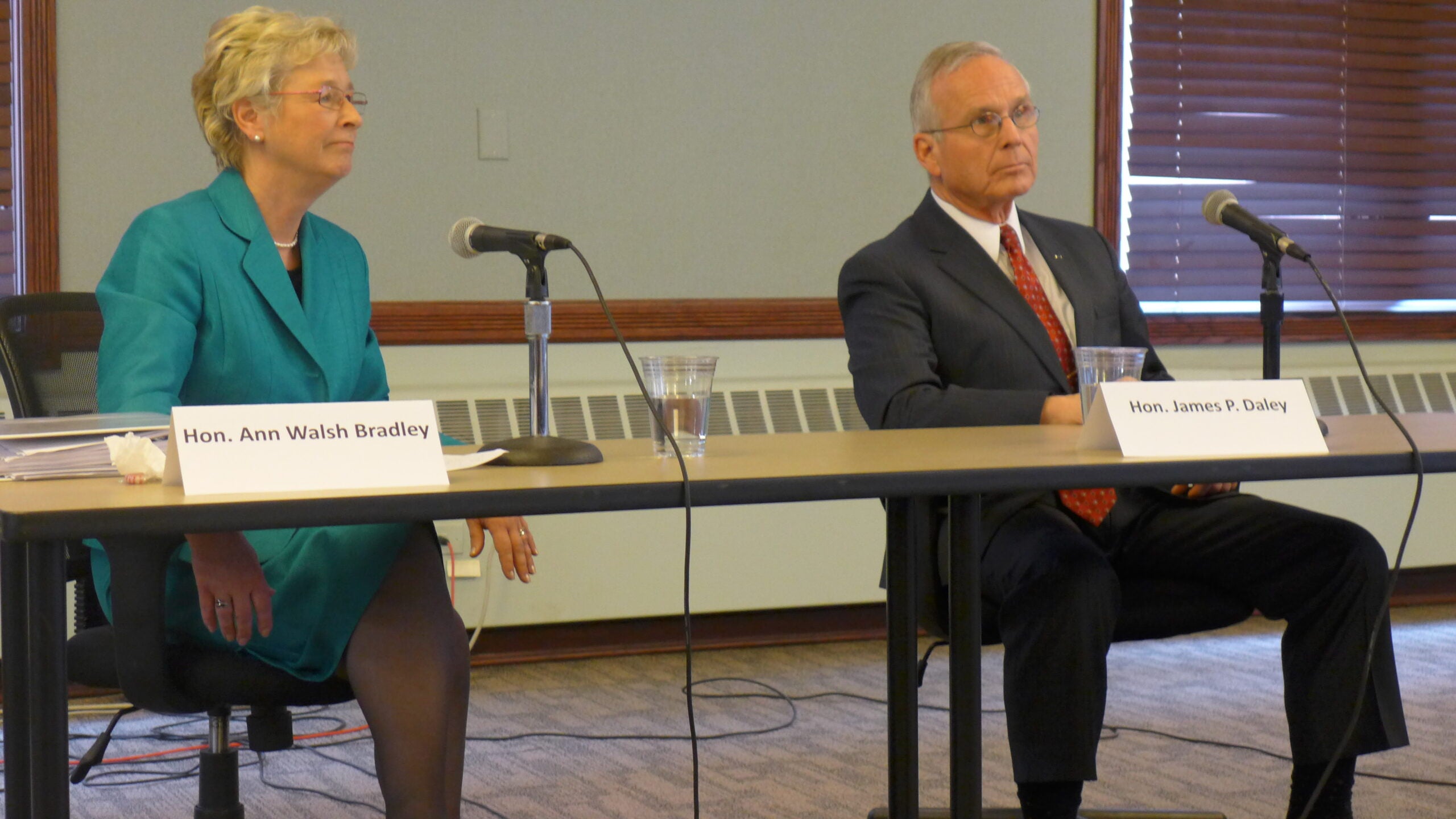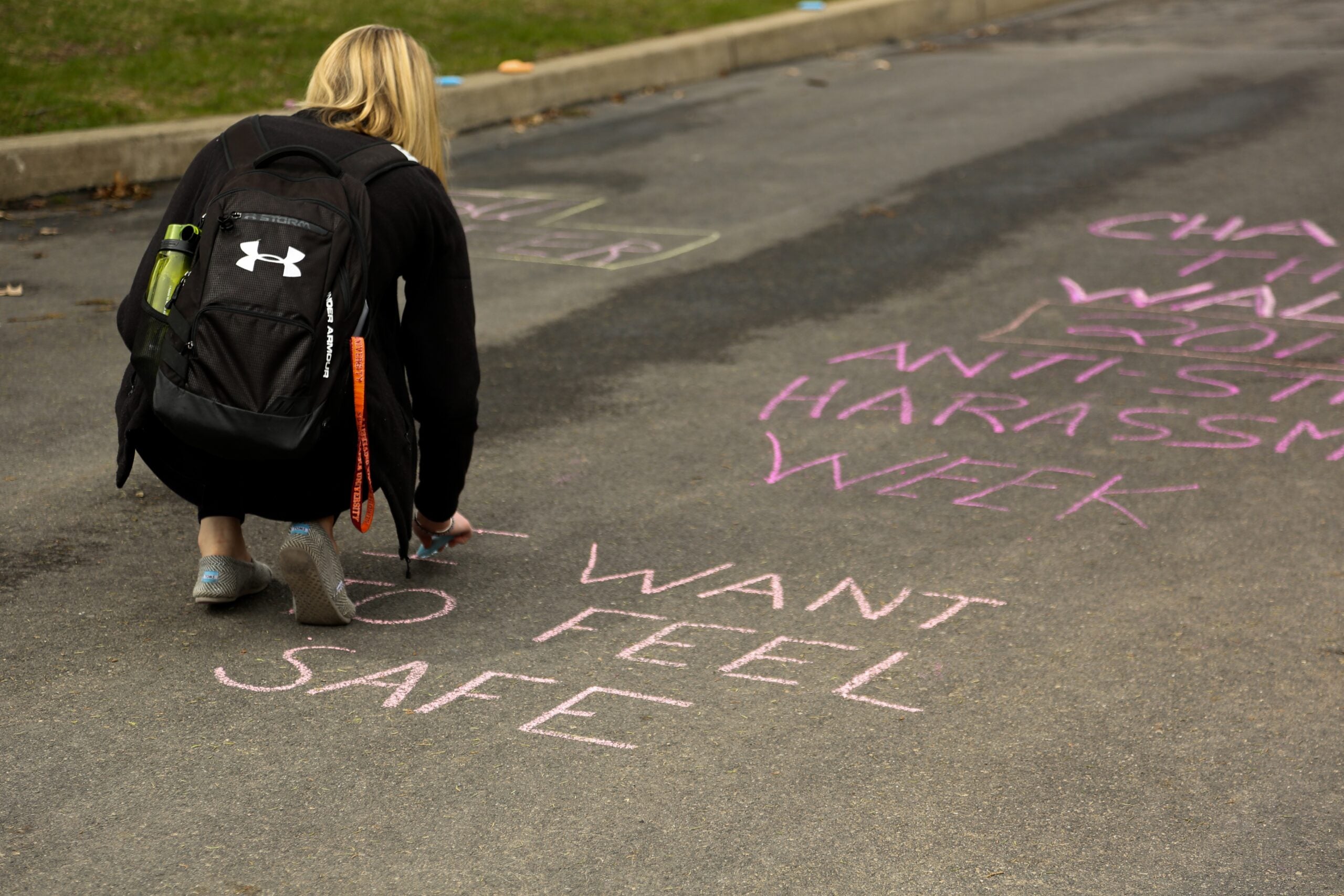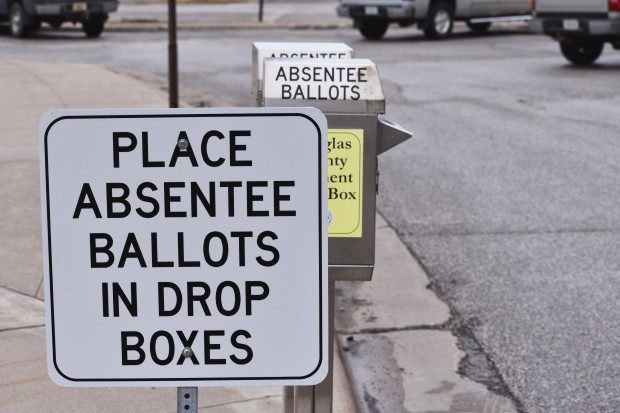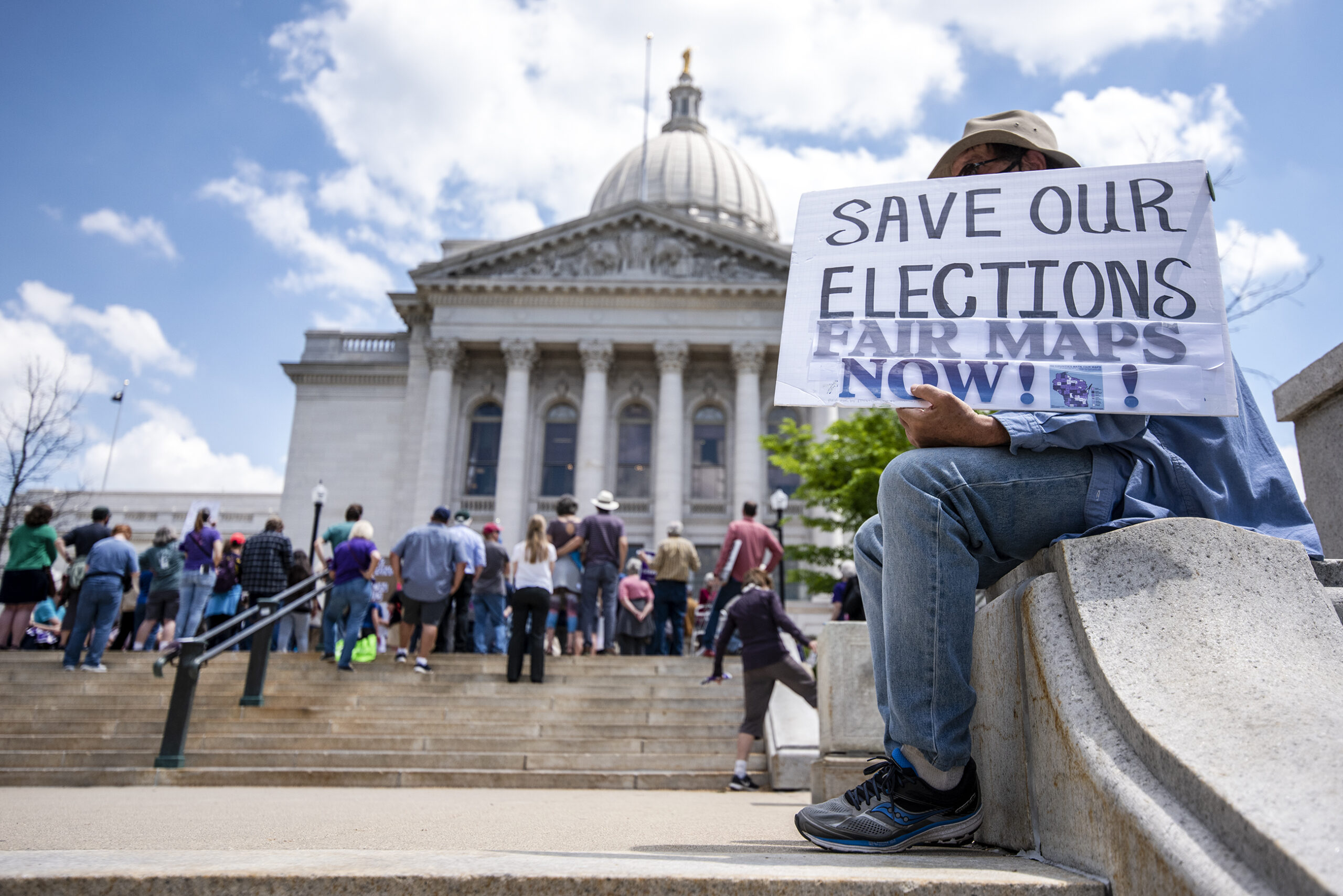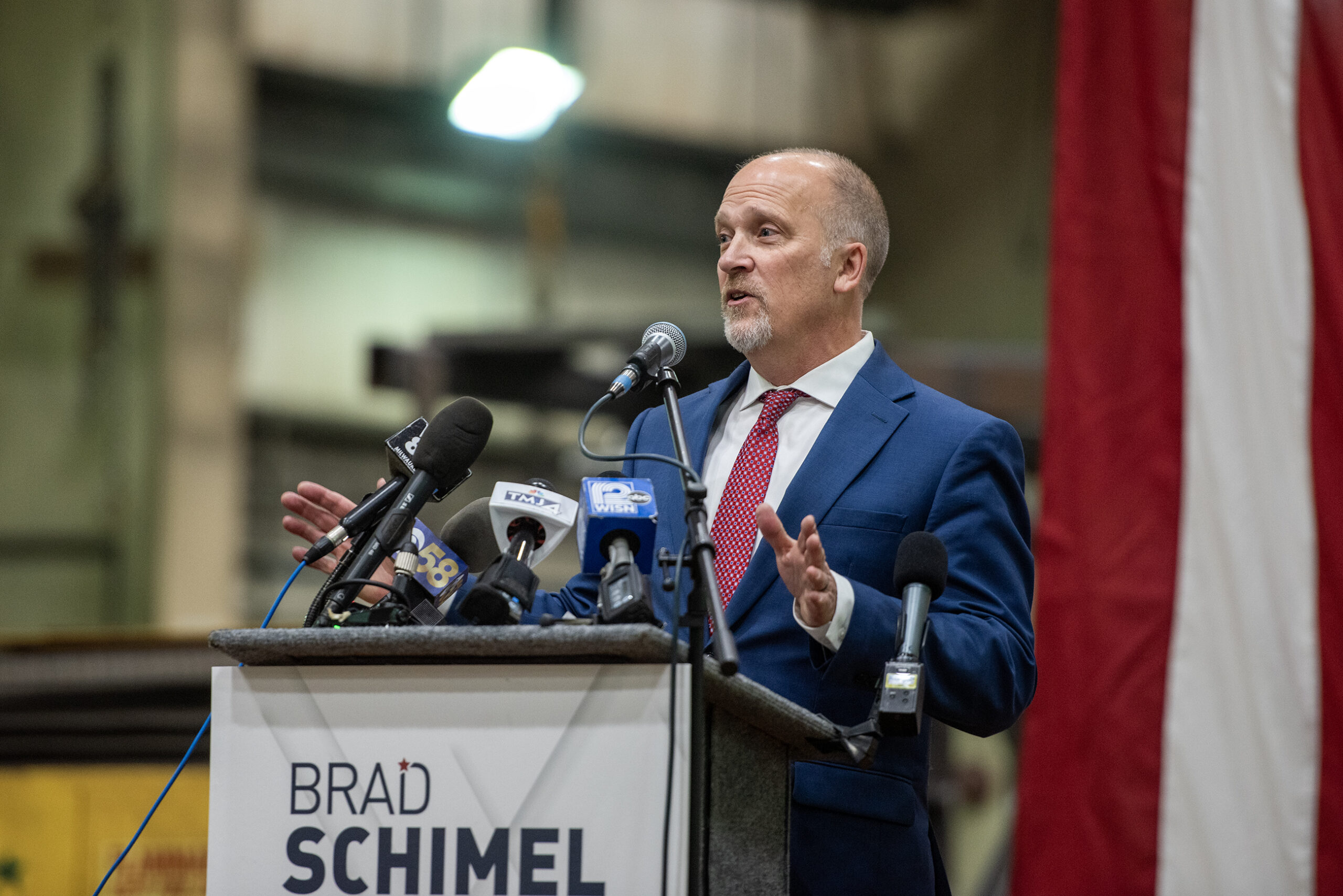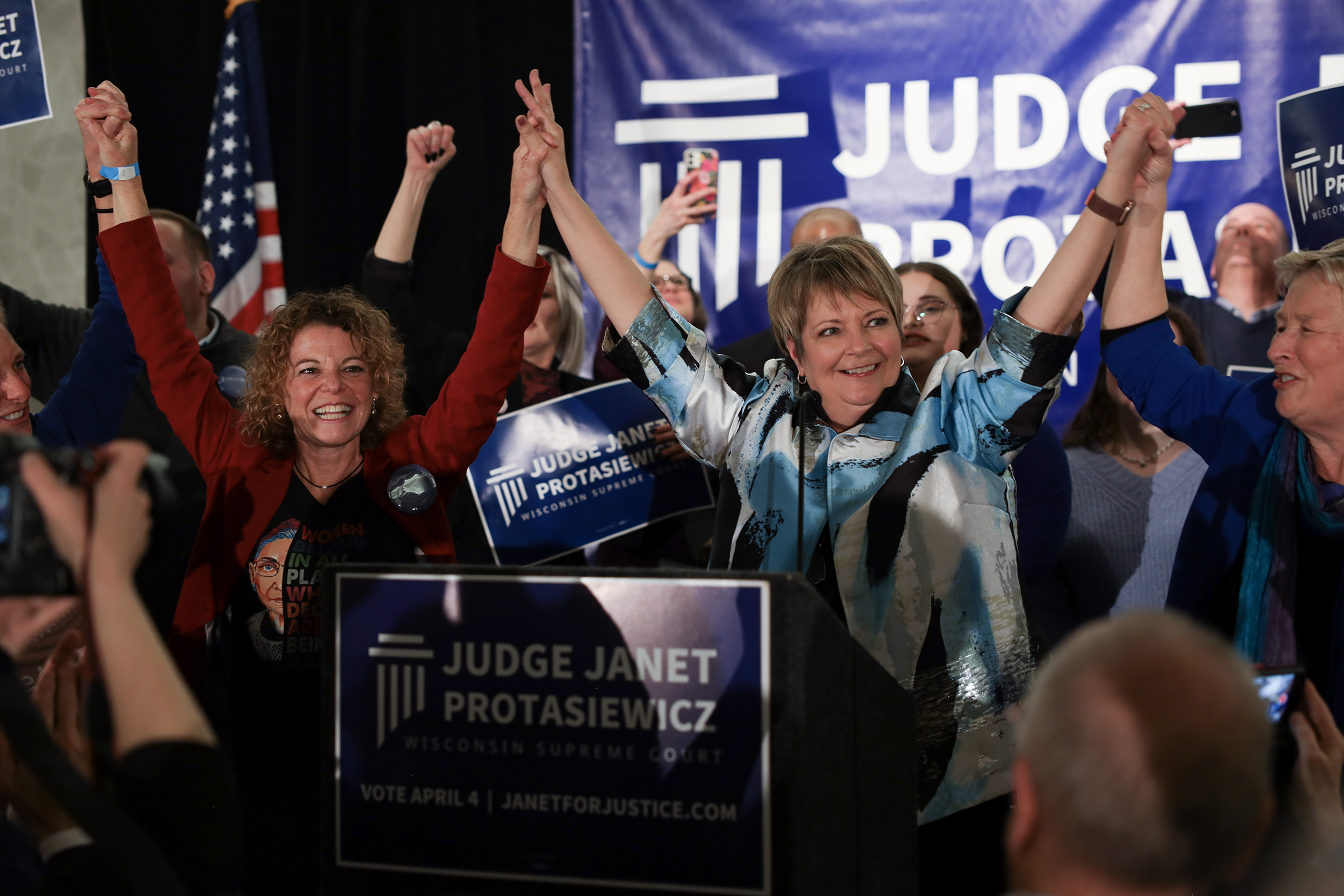In this spring’s race for state Supreme Court, both candidates have run radio ads accusing each other of being soft on crime, something political scientists say is part of a tried and true strategy designed to appeal to a voter’s fear of violent crime.
In the first the first ad paid for by the challenger in the race, Rock County Judge James Daley, a narrator accuses Daley’s incumbent opponent of letting a violent offender go free on a technicality.
“Justice Anne Walsh Bradley treated this confessed murderer like a victim, voting to throw out his murder conviction because of one word, two small letters,” the ad says. “Anne Walsh Braldey tried to put a violent criminal back on our streets.”
Stay informed on the latest news
Sign up for WPR’s email newsletter.
The violent criminal is Donyil Anderson. In 2009 he stabbed his ex girlfriend to death, confessed to the crime and was sentenced by Judge Daley to 20 years. Last year Anderson appealed, asking for new trial so he could make an insanity plea based on the fact the he was under the influence of alcohol and prescription antidepressants at the time of the murder.
In a 5-2 ruling this year, the Supreme Court rejected the appeal and Anderson remains in prison. Justice Bradley joined a dissent in the case, criticizing the majority ruling for misinterpreting the statutes governing the insanity defense.
Daley calls it an example of what Bradley has done throughout her career.
“There’s a whole history of expansion of the rights of the defendant in order to exonerate them and reverse their convictions,” Daley said.
But Bradley argues Daley has his own history of favoring criminal defendants. In one of her ads, she attacks Judge Daley for a lenient sentence he gave a child abuser. Brandon Quinn was convicted of brutally beating his girlfriend’s two children with a hammer.
“Their mother called it a complete failure of justice, her two children severely beaten bloody and unconscious. But the attacker only got a year from Judge Daley. Daley’s excuse for denying the victims justice? He told the media it wasn’t the worst case he’d ever seen” a narrator says grimly.
Daley said Bradley’s ad exploits the victims in this case to win votes.
Bradley described the crime in graphic detail during a televised debate last Friday night and, earlier this week, she defended the ad on Wisconsin Public Radio.
“I think people want to make sure that they’re secure in their homes and safe in their communities as they look towards our whole system of justice in this state,” Bradley said.
But University of Wisconsin-Madison political scientist Howard Schewber said the majority of cases the Supreme Court handles are civil, not criminal. And he said most of the contributors to judicial campaigns are more interested in the product liability, insurance and real estate disputes the Court decides.
“It’s hard to mobilize voters and whip up their outrage on those kinds of issues, so what happens is the campaigns are carried out based on proxy issues. Being soft on crime is a classic example, ” Schewber said.
Studies show these ads are effective but Schweber said, in his view, the strategy is based on a false premise.
“All these ads are fundamentally dishonest. No judge prefers criminal to citizens or to victims or thinks it’s a good thing that criminals go free or approves of crime,” Schewber said. “It’s just absolutely fundamentally dishonest.”
Throughout most of the campaign Daley has attacked Bradley as a liberal for her dissents against the state’s voter ID law and Act 10, which stripped public workers of collective bargaining rights. Bradley, meanwhile, has painted Daley as beholden to conservative special interests.
But spring elections traditionally draw a very low voter turnout and with the election less than a week away, both candidates appear to be counting on their “soft on crime” ads that have worked in the past to motivate voters to the polls.
Wisconsin Public Radio, © Copyright 2024, Board of Regents of the University of Wisconsin System and Wisconsin Educational Communications Board.

